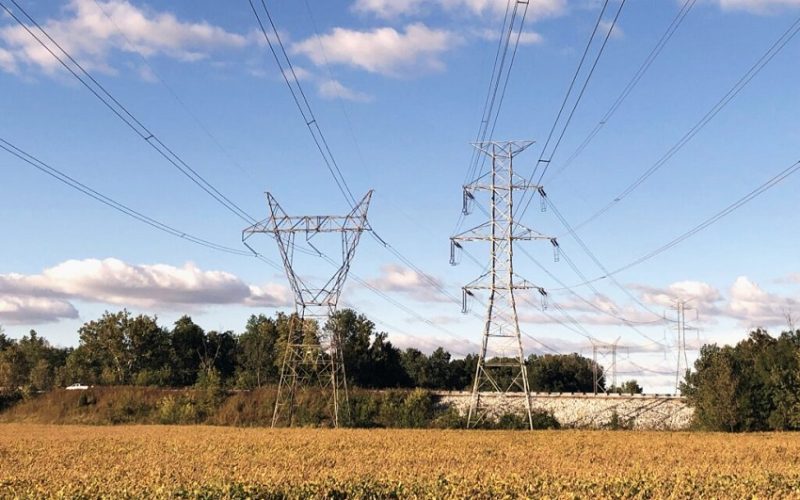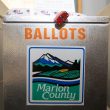Salem, OR – Oregon lawmakers on Tuesday made key amendments to House Bill 3666, a proposed piece of legislation aimed at enhancing fire mitigation practices, ensuring that utilities do not receive undue immunity from liability in the event their equipment causes wildfires. The changes came in response to concerns that the original bill could potentially shield power companies from lawsuits if their equipment was responsible for igniting wildfires.
The controversy surrounding the bill stemmed from a provision that would grant utilities a “wildfire safety certificate” issued by the Oregon Public Utility Commission (PUC). This certificate would indicate that a utility had taken reasonable steps to comply with state-established wildfire safety standards. Critics feared that this certificate could inadvertently offer utilities protection from liability, allowing them to argue they had acted “reasonably” even if their equipment sparked destructive wildfires, such as those that ravaged the state in 2020.
The amendment, introduced by Rep. Pam Marsh, D-Ashland, and the bill’s author, clarified the intent behind the certificate. The revised language specifies that the certificate merely indicates that a utility has implemented wildfire safety policies and practices in alignment with the commission’s standards at the time of issuance. It no longer suggests that utilities are immune from liability in wildfire-related lawsuits.
“This change is critical to ensure that the bill does not inadvertently provide utilities with a defense to liability in the event that their equipment causes a fire,” Marsh said during a public hearing. She added that the intent was never to offer utilities immunity but to establish clear, enforceable standards for wildfire prevention.
Despite this clarification, some critics remain skeptical about the bill’s effectiveness. Representatives from the Oregon Trial Lawyers Association (OTLA) and the timber industry continue to express concerns that the bill does not provide sufficient regulatory oversight or resources to ensure utilities comply with wildfire safety standards. They argue that the PUC, which would be responsible for certifying utilities, currently lacks the authority and capacity to conduct thorough audits and enforce the rules adequately.
OTLA spokesperson Cody Berne criticized the bill, asserting that it “recycles fire safety rules” that are already in place without adding meaningful safeguards or the necessary funding to enforce them. “If the goal is safety, this bill won’t accomplish it,” Berne said. “There are no resources to investigate whether investor-owned power companies are following the rules.”
The bill’s supporters, however, argue that it is a necessary step toward improving wildfire mitigation efforts. Keith Brooks, general manager of Douglas Electric Cooperative, emphasized that the bill would help utilities like his ensure they make the right investments in wildfire prevention without raising costs for consumers. “Without state standards, electric cooperatives can never do enough mitigation work,” he said, warning that rising costs could lead to economic displacement for residents in wildfire-prone areas.
The bill has garnered support from several utility representatives, including Portland General Electric, who emphasized that a standardized certification process would help utilities make more effective and targeted investments in wildfire mitigation, ultimately benefiting public safety.
The bill, as amended, would direct the PUC to establish and enforce minimum wildfire prevention standards for electric utilities. If passed, it would require utilities to adhere to these standards and obtain an annual certificate confirming their compliance. Supporters of the bill believe it will help set a higher bar for utility companies when it comes to wildfire prevention, while critics argue that without stronger enforcement mechanisms and resources for the PUC, the bill could fall short of its intended goals.
Sam Drevo, a survivor of the 2020 Labor Day fires in the Santiam Canyon, expressed cautious optimism about the changes. He acknowledged that the amendment addressed some of his initial concerns but emphasized that the state needs to focus more on holding utilities accountable. “We’re entering the fifth year since the fires, and there’s still no official report on what happened,” Drevo said, urging lawmakers to ensure that adequate resources are provided to the PUC to investigate and prevent future disasters.
As House Bill 3666 continues to move through the legislative process, lawmakers and stakeholders will likely continue to debate the balance between ensuring utility accountability and promoting effective wildfire mitigation strategies. The outcome of these discussions could have far-reaching implications for both public safety and the financial well-being of communities across the state.











